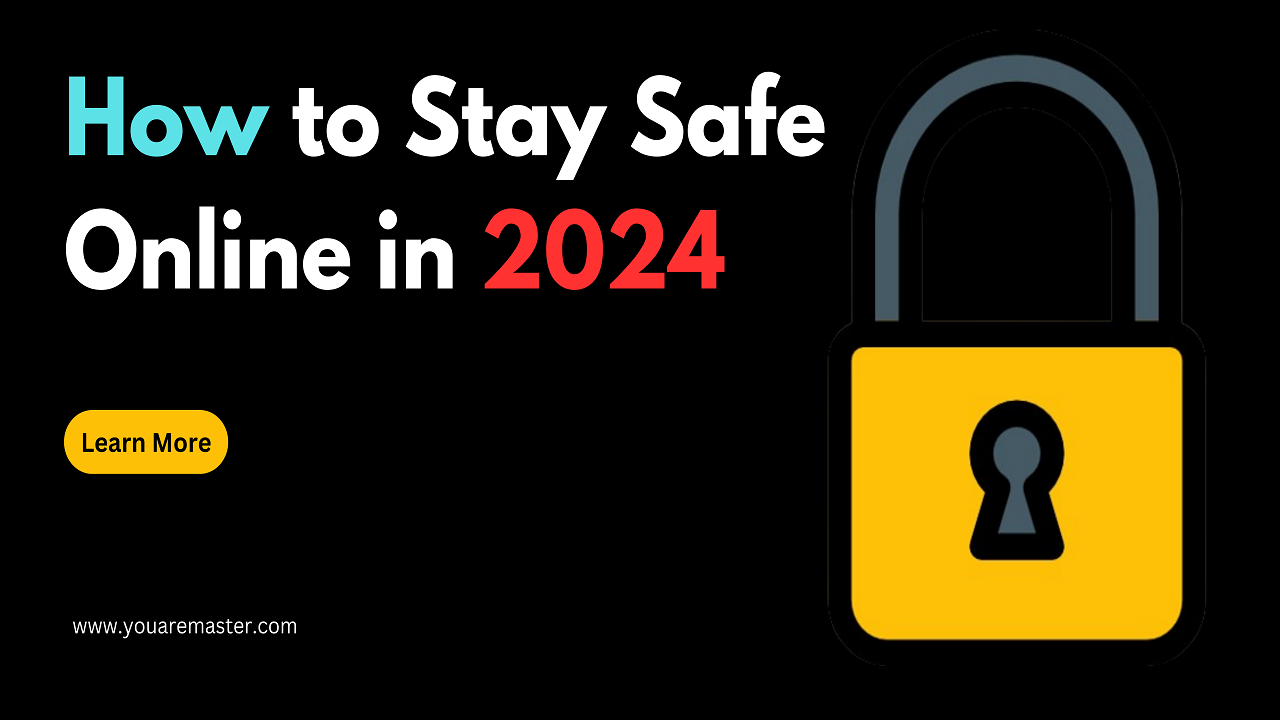How to Stay Safe Online
Introduction
In today’s interconnected world, staying safe online is more important than ever. With the prevalence of cyber threats such as phishing scams, malware attacks, and identity theft, safeguarding your digital security and privacy is essential for protecting yourself and your personal information. By following best practices and adopting proactive measures, you can minimize the risks of falling victim to online threats and enjoy a safer and more secure online experience. In this comprehensive guide, we’ll explore actionable tips on how to stay safe online and protect yourself from cyber threats effectively.
1. Use Strong and Unique Passwords
Create strong, unique passwords for your online accounts to prevent unauthorized access. Avoid using easily guessable passwords such as “password” or “123456” and opt for complex combinations of letters, numbers, and special characters. Consider using a reputable password manager to generate and securely store your passwords.

2. Enable Two-Factor Authentication (2FA)
Enable two-factor authentication (2FA) wherever possible to add an extra layer of security to your accounts. 2FA requires you to provide a second form of verification, such as a temporary code sent to your phone or email, in addition to your password. This helps protect your accounts even if your password is compromised.
3. Keep Your Software Updated
Regularly update your operating system, web browsers, and software applications to ensure they have the latest security patches and bug fixes. Enable automatic updates whenever possible to keep your devices protected against known vulnerabilities and exploits.
4. Be Wary of Suspicious Emails and Links
Exercise caution when opening emails from unknown senders or clicking on links in unsolicited emails. Be wary of phishing scams that attempt to trick you into revealing personal information or downloading malware. Look for red flags such as misspelled email addresses, urgent requests for information, and suspicious attachments.

5. Use Secure and Encrypted Connections
When accessing sensitive websites or conducting online transactions, make sure to use secure and encrypted connections. Look for HTTPS in the URL and a padlock icon in the address bar, indicating that the website uses SSL/TLS encryption to protect your data in transit. Avoid entering personal information on websites that do not use HTTPS.
6. Secure Your Wi-Fi Network
Secure your home Wi-Fi network with a strong password and encryption to prevent unauthorized access. Disable remote administration and guest networks if they are not needed, and regularly update your router’s firmware to patch security vulnerabilities. Consider using a virtual private network (VPN) for added privacy and security when browsing the web on public Wi-Fi networks.
7. Be Mindful of Your Social Media Activity
Be cautious about sharing personal information on social media platforms and adjust your privacy settings to limit the visibility of your profile and posts. Avoid posting sensitive information such as your address, phone number, or vacation plans, and be selective about accepting friend requests from unknown individuals.

8. Use Antivirus and Antimalware Software
Install reputable antivirus and antimalware software on your devices to protect against viruses, malware, and other malicious threats. Keep your security software up to date and perform regular scans to detect and remove any potential threats or vulnerabilities.
9. Educate Yourself About Cybersecurity Risks
Stay informed about the latest cybersecurity threats and trends by reading reputable sources and news outlets. Educate yourself about common tactics used by cybercriminals, such as phishing, ransomware, and social engineering, and learn how to recognize and avoid them.
10. Trust Your Instincts and Stay Vigilant
Trust your instincts and be skeptical of any unsolicited requests for personal information or unexpected offers that seem too good to be true. When in doubt, verify the legitimacy of emails, messages, or websites by contacting the sender directly or conducting independent research. Stay vigilant and proactive in protecting your digital security and privacy.
By following these tips and adopting a proactive approach to cybersecurity, you can minimize the risks of falling victim to online threats and enjoy a safer and more secure online experience.
FAQs
- What is the difference between antivirus and antimalware software?
- Antivirus software primarily focuses on detecting and removing viruses, while antimalware software is designed to identify and eliminate a broader range of malicious threats, including viruses, spyware, adware, and ransomware.
- What should I do if I suspect that my device has been infected with malware?
- If you suspect that your device has been infected with malware, immediately disconnect it from the internet, run a full scan with your antivirus software, and follow the recommended steps to remove any detected threats. Consider seeking assistance from a professional cybersecurity expert if needed.
- How can I protect my children’s online safety?
- Monitor your children’s online activities, set age-appropriate parental controls on their devices and apps, and educate them about online safety risks and responsible internet use. Encourage open communication and establish guidelines for safe and respectful online behavior.
- Is it safe to use public Wi-Fi networks?
- Public Wi-Fi networks can pose security risks, as they are often unencrypted and susceptible to eavesdropping and interception. Exercise caution when using public Wi-Fi networks for sensitive activities such as online banking or shopping, and consider using a VPN to encrypt your internet connection for added security.
- What should I do if I fall victim to a cyber attack or data breach?
- If you fall victim to a cyber attack or data breach, take immediate action to secure your accounts and personal information. Change your passwords, notify relevant authorities or organizations, and consider placing fraud alerts or freezes on your credit reports to prevent identity theft.

3 thoughts on “How to Stay Safe Online in 2024”